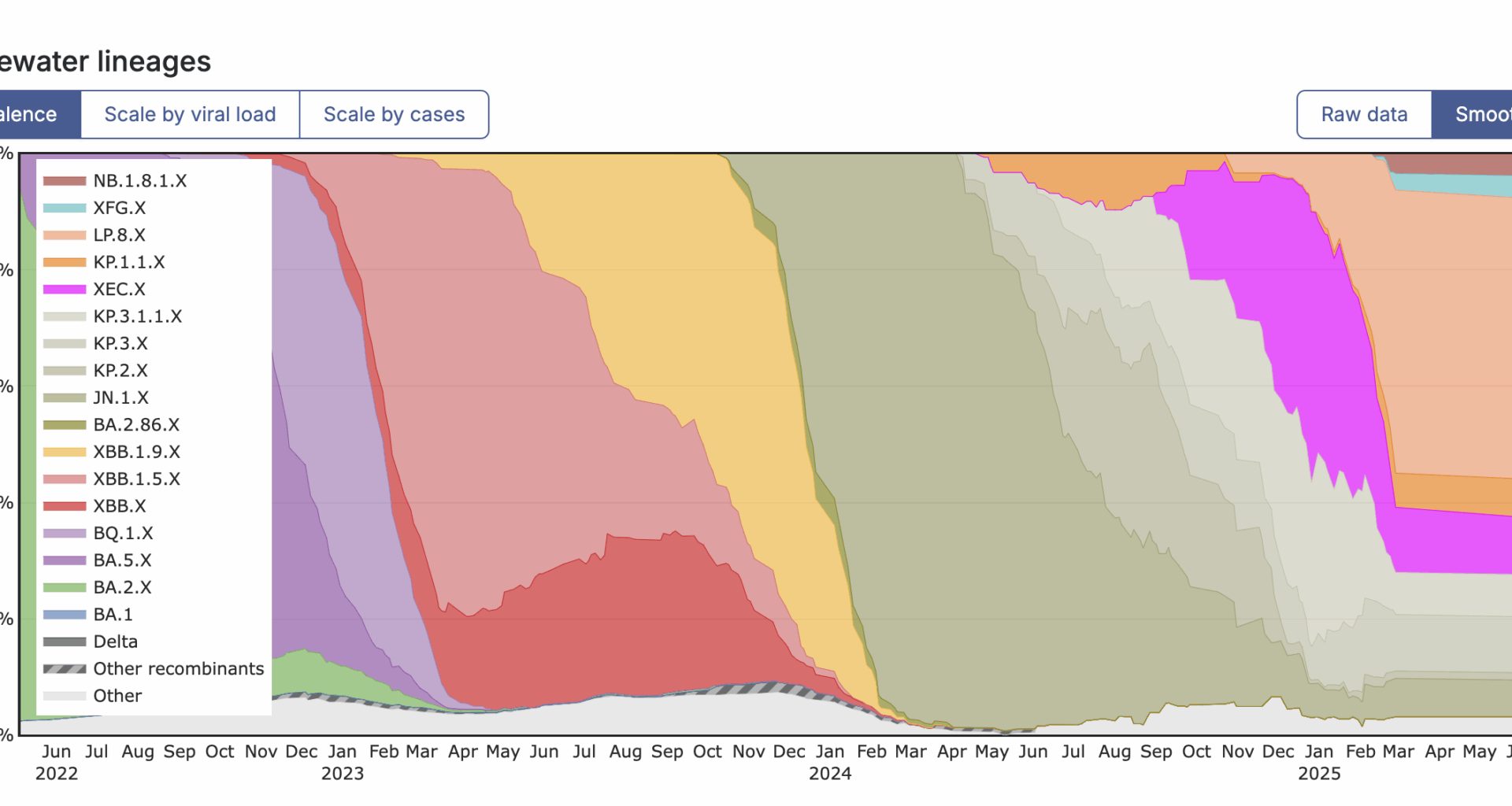Why this matters:
Federal funding cuts stopped the San Diego County COVID-19 surveillance program that tracks the virus using wastewater testing. It’s back in operation for now, but the flow of funds could stop again if the court rules against states.
Federal funding cuts halted a prominent San Diego County COVID-19 surveillance program that uses wastewater testing to track the spread of disease.
But after states sued over the cuts, the program is back.
By the end of the month, the county will take over operations of the program from researchers at the University of California San Diego and Scripps Research. The surveillance program will then be run by the recently opened $93 million San Diego County Public Health Laboratory.
The San Diego Epidemiology and Research for COVID Health program, called SEARCH for short, can find emerging coronavirus variants up to two weeks earlier than regular testing methods. It is the only type of surveillance that shows researchers what COVID-variant is circulating, which is important for treatment and vaccination strategies, according to Dr. Kristian Andersen, director of infectious disease genomics at Scripps Research.
In April, the SEARCH program announced it had lost its funding. The news came shortly after the county learned it would not receive $40 million of federal public health funding expected from the Centers for Disease Control and Prevention (CDC).
The federal money was part of $11 billion in public health funding given to state and local agencies to alleviate the pandemic effects on communities across the U.S. But in March, the Department of Health and Human Services announced the grants would be cut.
“Now that the pandemic is over, the grants and cooperative agreements are no longer necessary as their limited purpose has run out,” the agency said in a notice to state entities.
Looking to reverse the clawback, 23 states including California and the District of Columbia sued the federal Health and Human Services Department and the agency’s secretary, Robert F. Kennedy Jr., over the alleged unlawful termination of public health funding. In April, the U.S. District Court for the District of Rhode Island granted a temporary restraining order on Health and Human Services, ordering that the agency stop withholding the public health funds and process all payments from states.
Then in June, San Diego County learned it would get the money, and SEARCH researchers were told they could go back to work.
“All the money came through,” county spokesperson Tim McClain said.
But state and local agencies aren’t out of the woods yet. The money could disappear if the court rules in favor of HHS, allowing the cuts, or if the current grant money runs out.
How we are covering the Trump administration
inewsource is reporting on the impacts of the Trump administration budget and federal funding cuts in San Diego. Has your organization or one you know lost funding? Have a tip and want to talk with a reporter? We want to hear from you.
While funding was paused, scientists continued to collect wastewater samples with financial support from another UCSD researcher.
The scientists have already processed the backlog of data and updated the dashboard, giving San Diegans a picture of the prevalence of COVID-19 in recent months.
Andersen said wastewater surveillance is one of the most reliable methods to get an understanding of how much COVID-19 is circulating in the community.
Because samples are taken from wastewater treatment plants, findings are representative of a large portion of San Diego residents.
“Wastewater monitoring does offer this sort of early indicator of what is coming around the corner before it actually becomes a huge clinical and public health problem,” said Dr. Louise Laurent, co-director of UCSD’s EXCITE Lab. “You don’t have to wait for people to show up to their doctors and the health systems to figure out that there’s something happening.”
She said wastewater detection is helpful for research of all kinds of viral infections including ongoing projects examining Hepatitis A or Mpox.
Before the federal funding pause interrupted research, Laurent said the lab was working on broadening efforts to test for emerging pathogens like avian flu, measles and other viruses that can show up in wastewater. She said the intention was to optimize these tests and share the information with the county.
While it is considered one of the most accurate tracking methods, the SEARCH program is not the only way of measuring the coronavirus disease within San Diego.
The county’s Respiratory Virus Surveillance reports track data on positive tests, hospitalizations and deaths from COVID-19, flu and RSV, a potentially severe respiratory virus.
“These all come together to present an accurate and up-to-date picture of the burden of COVID-19 and other respiratory diseases in our community,” Andersen said.
Type of Content
News: Based on facts, either observed and verified directly by the reporter, or reported and verified from knowledgeable sources.
